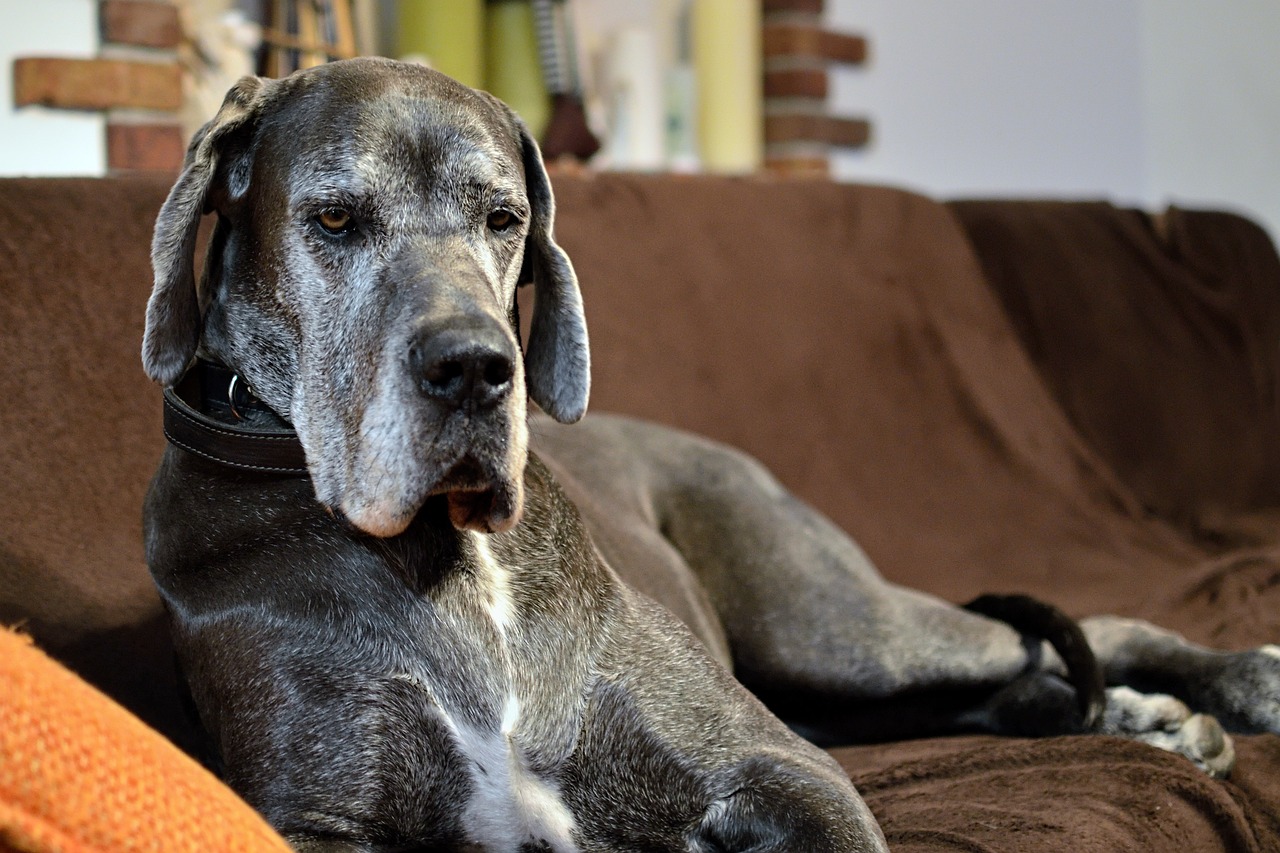Great Danes are a magnificent breed, admired for their towering stature and gentle temperament. However, their large size also predisposes them to specific health problems. Being aware of these common issues and their signs can help you ensure the best care for your Great Dane. Let’s explore five of these health problems.

-
Hip Dysplasia
Hip dysplasia is a common ailment in large breeds like Great Danes. This hereditary condition involves the abnormal development of the hip joint, causing pain, discomfort, and decreased mobility over time. Look out for signs such as difficulty getting up, an unusual gait, reluctance to jump or climb stairs, and a decrease in thigh muscle mass.
Early detection through X-ray screening is vital for managing hip dysplasia, as various treatments can alleviate discomfort and improve your dog’s quality of life.
-
Gastric Dilatation-Volvulus (GDV) or Bloat
Great Danes have a deep chest, making them susceptible to GDV or bloat, a serious condition where the stomach fills with gas and potentially twists. This condition is a veterinary emergency requiring immediate attention.
Signs include a distended abdomen, excessive drooling, restlessness, retching without vomiting, and signs of discomfort. If you notice any of these symptoms, seek immediate veterinary attention.
-
Cardiomyopathy
Dilated Cardiomyopathy (DCM) is a heart condition commonly seen in Great Danes, characterized by the weakening of the heart muscle and dilation of the heart chambers. This disease often results in congestive heart failure.
Symptoms can include lethargy, coughing, rapid breathing, decreased appetite, and fainting. Regular heart check-ups are essential, especially for older Great Danes, as early detection can lead to more successful management of the condition.
-
Hypothyroidism
Hypothyroidism, a condition resulting from low production of thyroid hormones, is also common in Great Danes. Symptoms can include lethargy, unexplained weight gain, hair loss, frequent skin infections, and intolerance to colds.
If you notice these signs, your vet can perform a blood test to check thyroid levels. Hypothyroidism is typically managed with lifelong medication to replace the deficient thyroid hormones.
-
Wobbler Syndrome
Wobbler Syndrome, also known as cervical spondylomyelopathy (CSM), affects the cervical spine at the neck, resulting in a wobbly gait—thus the name. This neurological disorder can cause a range of symptoms from mild unsteadiness to severe paralysis.
Symptoms include a wobbly or uncoordinated gait, neck pain, weakness in the hind legs, and in severe cases, paralysis. If your Great Dane is showing any of these signs, immediate veterinary care is necessary.
Great Danes are noble creatures who bring immense joy to their human families. Understanding the health issues they may face can ensure your Dane gets the care they need. Regular vet check-ups are an essential part of this, as many conditions can be managed with early detection and appropriate treatment. As always, when it comes to your dog’s health, it’s better to be safe than sorry—reach out to a veterinarian if you have any concerns.
 Toledo, United States.
Toledo, United States.